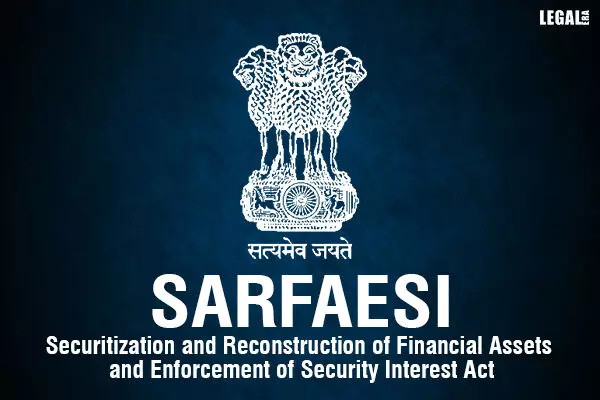- Home
- News
- Articles+
- Aerospace
- AI
- Agriculture
- Alternate Dispute Resolution
- Arbitration & Mediation
- Banking and Finance
- Bankruptcy
- Book Review
- Bribery & Corruption
- Commercial Litigation
- Competition Law
- Conference Reports
- Consumer Products
- Contract
- Corporate Governance
- Corporate Law
- Covid-19
- Cryptocurrency
- Cybersecurity
- Data Protection
- Defence
- Digital Economy
- E-commerce
- Employment Law
- Energy and Natural Resources
- Entertainment and Sports Law
- Environmental Law
- ESG
- FDI
- Food and Beverage
- Gaming
- Health Care
- IBC Diaries
- In Focus
- Inclusion & Diversity
- Insurance Law
- Intellectual Property
- International Law
- IP & Tech Era
- Know the Law
- Labour Laws
- Law & Policy and Regulation
- Litigation
- Litigation Funding
- Manufacturing
- Mergers & Acquisitions
- NFTs
- Privacy
- Private Equity
- Project Finance
- Real Estate
- Risk and Compliance
- Student Corner
- Take On Board
- Tax
- Technology Media and Telecom
- Tributes
- Viewpoint
- Zoom In
- Law Firms
- In-House
- Rankings
- E-Magazine
- Legal Era TV
- Events
- News
- Articles
- Aerospace
- AI
- Agriculture
- Alternate Dispute Resolution
- Arbitration & Mediation
- Banking and Finance
- Bankruptcy
- Book Review
- Bribery & Corruption
- Commercial Litigation
- Competition Law
- Conference Reports
- Consumer Products
- Contract
- Corporate Governance
- Corporate Law
- Covid-19
- Cryptocurrency
- Cybersecurity
- Data Protection
- Defence
- Digital Economy
- E-commerce
- Employment Law
- Energy and Natural Resources
- Entertainment and Sports Law
- Environmental Law
- ESG
- FDI
- Food and Beverage
- Gaming
- Health Care
- IBC Diaries
- In Focus
- Inclusion & Diversity
- Insurance Law
- Intellectual Property
- International Law
- IP & Tech Era
- Know the Law
- Labour Laws
- Law & Policy and Regulation
- Litigation
- Litigation Funding
- Manufacturing
- Mergers & Acquisitions
- NFTs
- Privacy
- Private Equity
- Project Finance
- Real Estate
- Risk and Compliance
- Student Corner
- Take On Board
- Tax
- Technology Media and Telecom
- Tributes
- Viewpoint
- Zoom In
- Law Firms
- In-House
- Rankings
- E-Magazine
- Legal Era TV
- Events
Jharkhand High Court: District Magistrate Must Assist Secured Creditors In Asset Possession Under SARFAESI Act

Jharkhand High Court: District Magistrate Must Assist Secured Creditors In Asset Possession Under SARFAESI Act
In a recent ruling, the Jharkhand High Court emphasized the responsibility of district magistrates to assist secured creditors in taking possession of secured assets under the Securitization and Reconstruction of Financial Assets and Enforcement of Security Interest (SARFAESI) Act, 2002. The court clarified that the District Magistrate does not serve as the adjudicating authority under this Act.
Justice Ananda Sen stated, "It is the duty of the District Magistrate to assist the secured creditor in taking possession of the secured assets. The timeframe has been mentioned, which is 30 days. Any delay at the instance of the District Magistrate will frustrate the provisions of this Act. Further, the District Magistrate is not the adjudicating authority under the aforesaid Act. His duty is only to assist the secured creditor in taking possession of the property, i.e., to give assistance so that possession can be taken peacefully, and if someone obstructs, appropriate action can be taken against him."
This ruling came in a case where the petitioner had filed an application under Section 14 of the SARFAESI Act, which had been pending with the Deputy Commissioner/District Magistrate since July 8, 2022. The court noted that the delay in processing the application was undermining the intent of the law.
The court observed, "By delaying the disposal of this application, the District Magistrate is frustrating the intent of the law, which should not be."
Consequently, the court directed the Deputy Commissioner/District Magistrate of East Singhbhum to take immediate steps within two weeks to process and dispose of the petitioner's application in accordance with Section 14 of the SARFAESI Act.
The writ petition was thus disposed of, with clear directives to expedite the application process to uphold the intent of the SARFAESI Act.


